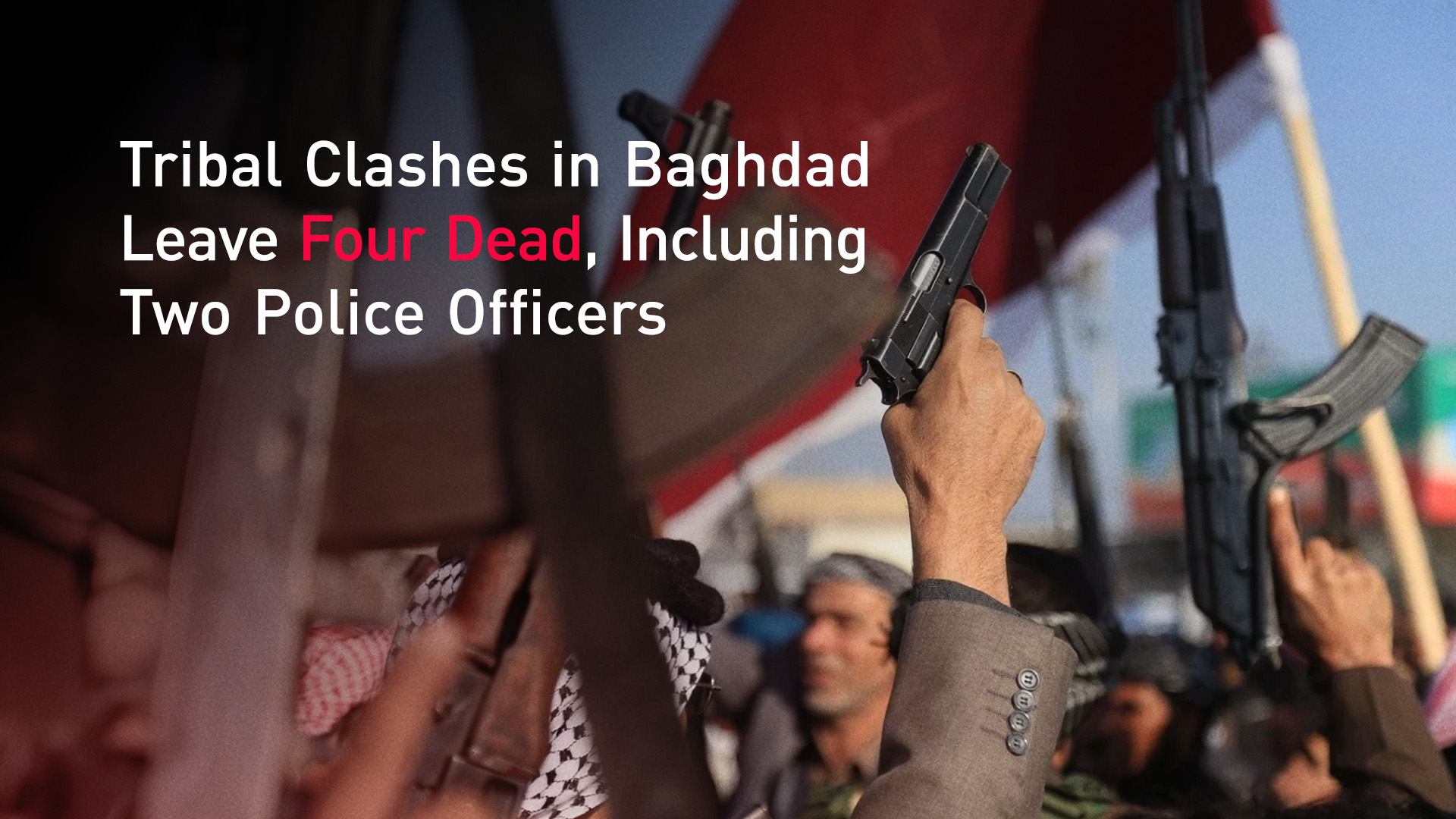Tribal Clashes in Baghdad Leave Six Dead, Including Four Police Officers
Tribes in Iraq continue to play a central role in the country’s social, political, and security landscape, maintaining their own moral and judicial codes, often resolving disputes internally through traditional councils.

ERBIL (Kurdistan24) — Six people, including four police officers, were killed during tribal clashes in Baghdad, Iraqi authorities reported on Sunday.
The Interior Ministry said that the two officers were killed and five others wounded late Saturday night while attempting to intervene in a “tribal dispute” in the Saada area of the capital. Security forces returned fire after being attacked by members of the group that initiated the clashes, killing two assailants and wounding five more. Six attackers were subsequently arrested, the ministry added.
Iraqi security officials, speaking to AFP on condition of anonymity, said the clashes late Saturday were triggered by disputes over higher fees for a private power generator. Most Iraqis depend on private generators to cope with prolonged daily power cuts from the public electricity supply.
The violence in Baghdad’s Saada neighborhood left four police officers dead—including two commanders—after they attempted to intervene in a “tribal dispute,” the interior ministry said, updating an earlier casualty count.
A security official, who requested anonymity because he was not authorized to speak to the media, confirmed that the death toll was revised after two officers died from their injuries. The ministry also reported that nine additional officers were wounded.
Tribal feuds are a recurring issue in Iraq, a country still grappling with the long-term effects of war and political instability. Tribes in Iraq continue to play a central role in the country’s social, political, and security landscape. Many tribes maintain their own moral and judicial codes, often resolving disputes internally through traditional councils or mediators.
This tribal autonomy is reinforced by large stockpiles of weapons, a legacy of decades of conflict, including the Iran-Iraq War, the 2003 U.S.-led liberation operation, the fight against ISIS, and internal sectarian clashes.
In Baghdad and other urban centers, tribal allegiances can significantly influence local security dynamics. Tribal disputes frequently escalate into violent confrontations, involving firearms and sometimes improvised explosives, which can complicate the work of national security forces.
Police interventions often face resistance, as tribes may perceive such actions as challenges to their authority or honor.
Beyond security concerns, tribal structures also exert considerable political influence, especially in southern and central Iraq. Tribes can mobilize large groups to pressure the government on issues ranging from local governance to resource distribution.
Their leaders often negotiate directly with political figures or act as intermediaries in conflicts, giving them an outsized role in both rural and urban areas.
While the Iraqi government has sought to integrate tribal militias into formal security structures in the past, many armed groups continue to operate independently, making enforcement of law and order challenging.
Observers note that as long as weapons remain widely available and tribal codes of justice remain deeply entrenched, sporadic clashes like the one in Saada are likely to continue, particularly in Baghdad’s peripheral neighborhoods where tribal influence remains strong.
The persistence of tribal clashes in Baghdad highlights the fragile security situation in Iraq’s capital, where state authority is often contested by local power structures. Such disputes not only threaten public safety but also undermine confidence in law enforcement and the judicial system, particularly when tribes act according to their own codes rather than national laws.
Subject matter experts warn that repeated incidents of this nature can exacerbate social tensions, fuel cycles of revenge, and hinder efforts to stabilize the city politically and economically.
Moreover, tribal violence in Baghdad may complicate broader government initiatives, including anti-corruption measures, public service delivery, and the integration of militias into formal security institutions, leaving authorities struggling to assert control over neighborhoods where tribal loyalties remain strong.
This article has been updated.